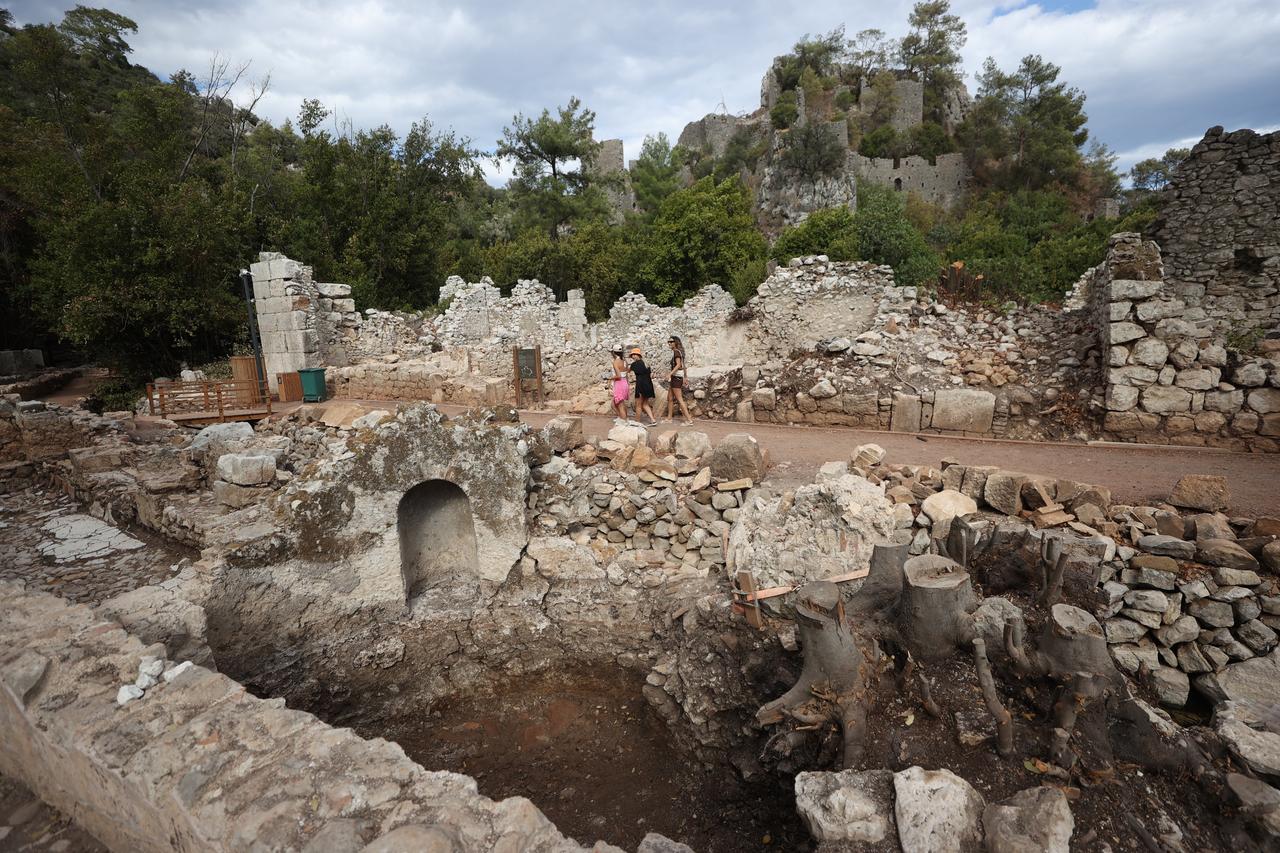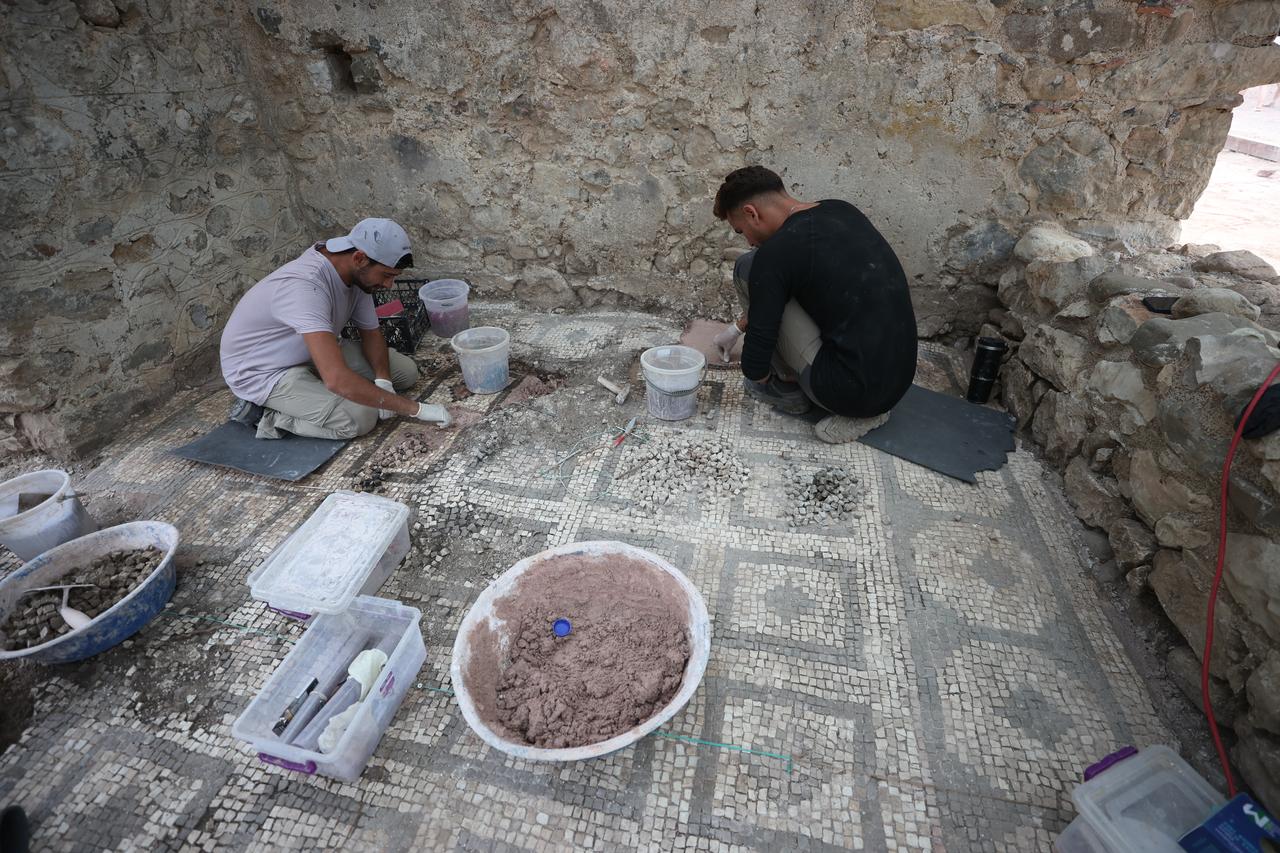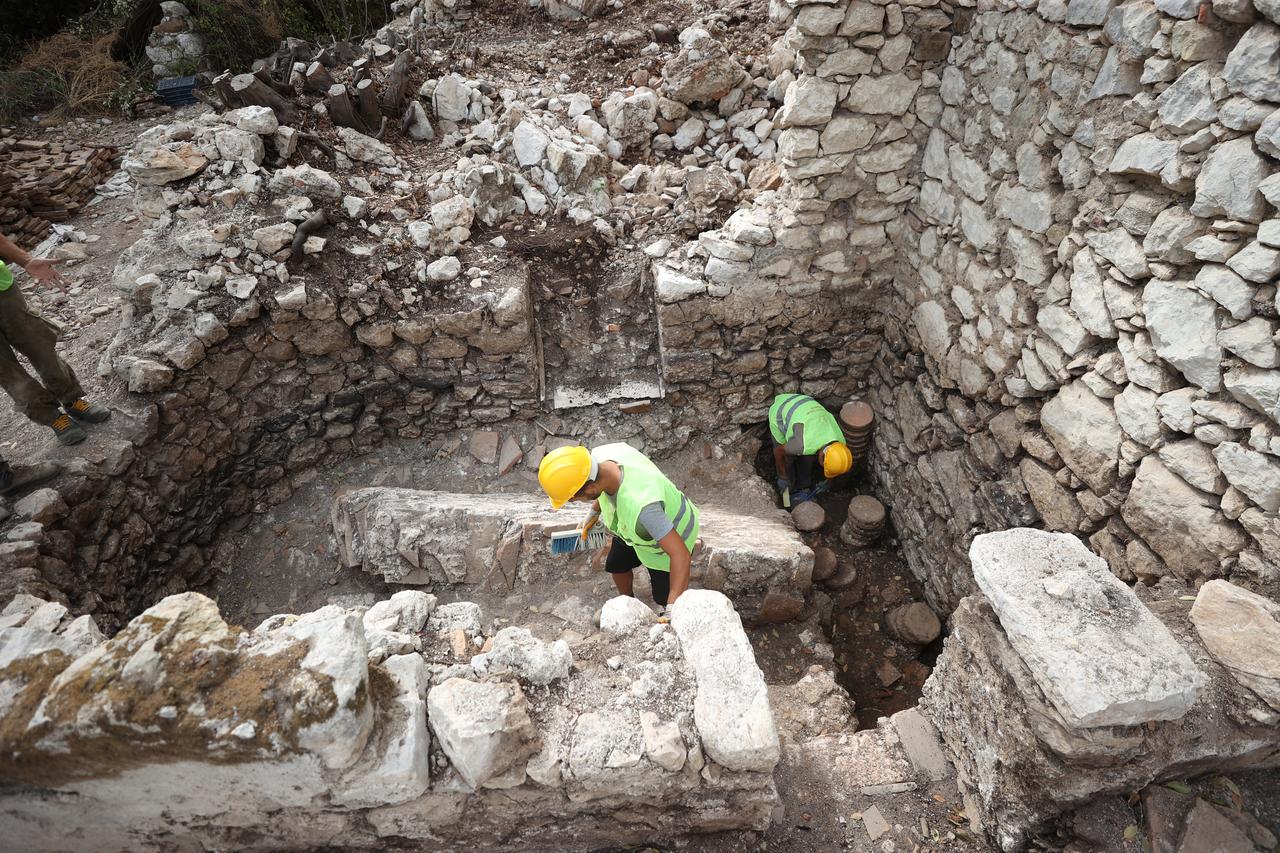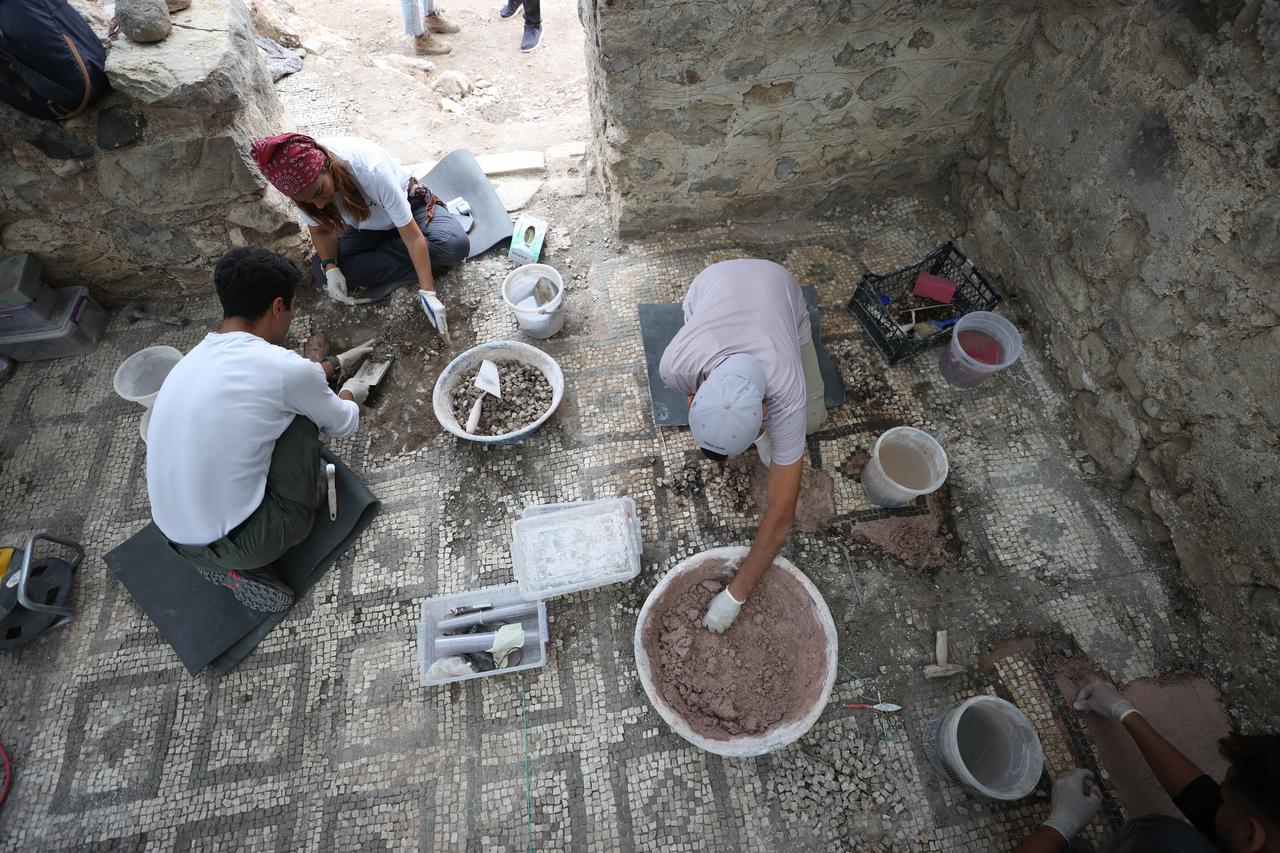
Archaeologists in Antalya’s Kumluca district have uncovered a large bathhouse attached to a Byzantine bishop’s residence in the ancient city of Olympos.
Measuring nearly 200 square meters, the structure stands out as an unusual example of a private yet semi-public complex from Late Antiquity.

Olympos, located within Beydaglari Coastal National Park, was one of the six most important cities of the Lycian League, the ancient federation that once gave the region political prominence. Excavations began in 2006 and have since revealed evidence from the Hellenistic, Roman, and Byzantine periods. Under the “Heritage for the Future" project of Türkiye’s Ministry of Culture and Tourism, the site is now investigated year-round.
Assoc. Prof. Gokcen Kurtulus Oztaskin of Pamukkale University, who leads the excavations, explained that current work has focused on necropolises, bathhouses, civil residences, and churches. One of the key highlights was the exposure of mosaics in the first church encountered at the city’s main entrance. The floors were covered in geometric designs executed with a refined version of the opus tessellatum technique, in which small unpolished stones are used to create patterned mosaics.

Among this year’s findings was a spacious bathhouse attached to a private residence dating to the 5th or 6th century AD. Oztaskin noted that while private bathhouses attached to homes were normally small, the Olympos example covered close to 200 square meters and was far larger than expected.
The team documented a full heating system, including the kullan (furnace) and wall heating installations, alongside fragments of interior wall coverings. Such architectural features made the discovery stand out as a rare example of its kind from the Late Antique period.
Archaeologists concluded that the residence and bath belonged to the city’s bishop, who by that time acted not only as a religious leader but also as a civic authority controlling Olympos’ wealth and resources.
Oztaskin emphasized: “The bathhouse was not only for the bishop’s private use. It had entrances both from the main street and from the house. On certain days of the week, the bishop allowed ordinary townspeople to use it free of charge, both for hygiene and for health purposes.”

The excavation team has also been engaged in restoring the city’s funerary monuments. Oztaskin recalled that last year two sarcophagi were found shattered into 370 fragments.
After a painstaking conservation process, the pieces were reassembled “like a puzzle” and restored to their original form. By the end of this year, four sarcophagi in total will be re-erected on site for public display.